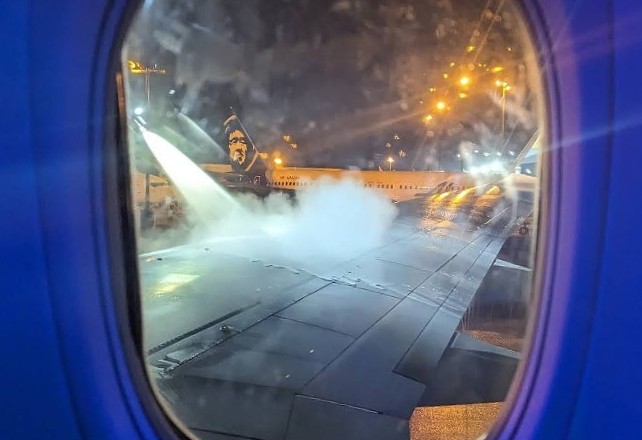
Over the weekend, five Democratic Senators and five unions who almost always oppose major climate legislation signed a hostage letter addressed to Rep. Joe Fitzgibbon, demanding he swallow the poison pills the Senate slipped into the low carbon fuel standard (LCFS) bill or else lose their support. Fitzgibbon sponsored the proposal at the request of the Governor's office, so he's the one who leads negotiations on the transformative bill, which passed the Senate late last week for the first time ever.
The signatories on the letter included four conservative Democrats responsible for watering down a lot of bills this year: Mark Mullet (our very own Joe Manchin), Annette Cleveland, Kevin Van de Wege, and Steve Conway. Sen. Steve Hobbs would normally make that list, but he joined Republicans in voting against the bill in the first place.
The somewhat surprising name on the letter was Sen. Bob Hasegawa. He represents South Seattle's 11th Legislative District, an area with much lower life expectancies than neighborhoods north of the cut. Environmentalists blame some of those health problems on the very air pollution the LCFS would scrub out over time, so why the hell would he oppose a bill that would directly benefit the health of people in his district?
As we've reported several times this year, the LCFS would cut carbon emissions in fuels by 10% in 2028, and then by 20% in 2035. To help meet that goal, the proposal would also establish a clean fuel marketplace, where dirty fuel producers could buy relatively cleaner fuels as offsets to comply with the law. The bill would work in concert with other carbon reduction legislation to ultimately help the state reach net zero carbon emissions by 2050.
But the five Democrats who signed the letter will block all that from happening unless the House maintains the following provisions:
• Ensure that this policy does not dramatically increase the cost of fuel, which is a burden that will likely fall on consumers and disproportionately impact those who can least afford it.
• Ensure that Washington State benefits from the jobs created by the additional money that will be spent by consumers on low carbon fuels. This includes new biofuel facilities in Washington and an assurance that some of the crops used to make those fuels come from our state.
• The bill must maintain a link to the transportation package.
• Maintain the legislative review beyond the 10% threshold so that elected officials can weigh the efficiency of the policy after implementation.
Over the phone, Rep. Fitzgibbon said preserving these four provisions from the Senators would render the bill "unworkable to the point that it would never be implemented," but said the House will "try to find other ways to reassure them that we can meet their interests if not the letter of what they wrote into the bill."
Though the Senators' concerns about gas prices seems valid if not overstated, the rest of the provisions are "unworkable" because they would essentially gut the bill or render it vulnerable to a federal court judge's scythe. I'll briefly hit these points in order.
The cost of fuel
The issue of oil companies choosing to raise prices on consumers rather than choosing to take a hit to their profits has always haunted the LCFS, but in real life gas prices haven't risen much in states that have adopted the program.
Last year Oregon put the average cost of their program at 2.57 cents per gallon of gasoline.
Vlad Gutman-Britten, state director for Climate Solutions, pointed to a 2016 study from Consumer Reports showing that California's cocktail of carbon markets will reduce fuel costs over time. He also provided an analysis of the actual gas and diesel prices in California over the last several years, which shows little if any real relationship between the price of the state's fuel credits and the rise and fall of prices at the pump.

The oil companies like a 2019 Puget Sound Regional Transportation Fuels report, which put the "worst-case marginal compliance cost per gallon" between 22 and 57 cents per gallon.
Given the fact that the worst-case projections seem way off compared to actual price changes in states with clean fuel standards, I'm skeptical of a massive impact at the pump. But even if such a hike did occur, lawmakers could make adjustments to the bill whenever they wanted anyway.
Requiring biofuel crops to come from our state
Even though the LCFS supporters expect companies to follow California's lead and rely more heavily on electrification rather than biofuel credits in order to comply with the law, the Senate's version of a bill requires a "25% net increase in the volume of instate liquid biofuel production and the use of agricultural feedstocks grown within the state" as a precondition for cutting carbon intensity in fuels beyond 10%.
According to Dennis McLerran, an attorney at Cascadia Law Group who used to be our region's EPA administrator, such a provision could render the law "vulnerable to a commerce clause challenge."
While states can't discriminate against other states in matters of commerce without running afoul of the constitution, the "so-called dormant commerce clause" would allow a state to "provide incentive funding or financing for in-state economic development," McLerran added.
So if these four conservative Democrats plus Hasegawa did not want to kill the bill, they could, for instance, replace their poison pill with a tax break for companies who buy Washington crops for biofuel production. But that's not what they're proposing in their letter.
Maintaining the link to the transportation package
The transportation package is an $18 billion behemoth that directs most funds to highway projects, which may undermine the work the clean fuel standard seeks to accomplish. The only reason to link the LCFS to the roads package is to give a few conservative Democrats some examples of wasteful government spending to point to as wins for their districts. It's dumb.
Requiring the Legislature to pass the bill again 2028
The Senate's version of the bill would prevent the state from cutting any more carbon out of fuels beyond 10% "without explicit legislative authorization" in 2028. That essentially means lawmakers would have to decide whether to pass the entire bill again based on information about health benefits and gas prices obtained during the program's infancy.
This provision doesn't make much sense because the Legislature can always make changes to laws in future sessions, so all this provision would do is enrich oil lobbyists who make bank pressuring lawmakers to weaken clean fuels bills, and ultimately prompt another round of idiotic legislative horse-trading all before the program really kicks into gear.
All told, these provisions set up massive obstacles on the path to reducing the carbon intensity of transportation emissions. They tie the bill to a transportation package that everybody hates, and then force it to fight a losing battle in federal court. If those two moves don't kill it, they'll require the same process to start over again in a few more years.
So what the fuck is Hasegawa's deal?
In an email, Hasegawa's spokesperson said concern for disparate impacts on people of color and low-income residents in his district drove him to join forces with Mark Mullet.
Hasegawa expressed concern about "competing information about the impact on gas costs," and said the legislative review provision, which he called "the most important aspect of the letter," would serve as an appropriate "check-in" measure.
When asked how he weighed the balance between the health of his constituents and the potential rise in gas prices, he said the "check-in would allow both to be considered at once," reducing to a mere consideration the future authorization of a massive bill that has taken 12 years to even get this far.
"Sen. Hasegawa ultimately voted in favor of the bill because he understands the importance of it in his community, and the need to transition towards more sustainable solutions across the state," the spokesperson added.
The clean fuel standard passed 27 to 20 in the Senate, so the bill can only lose two Democrats in that body to stay viable. A full reversal from Hasegawa wouldn't fully tip the scales here, but his opposition to cleaning up the emissions that are clogging the lungs of his constituents doesn't hold up to scrutiny.
If you'd like to tell him and any of these other Senators that, then write them up a little email. As with all these politicians, they really only understand what you're saying if you live in their district or give Democrats a bunch of money.
Sen. Hasegawa, who represents South Seattle's 11th LD: bob.hasegawa@leg.wa.gov
Sen. Mullet, who represents in-ground pool owners in the east side's 5th LD: mark.mullet@leg.wa.gov
Sen. Cleveland, who represents southwest Washington's interest in an I-5 replacement bridge over the Columbia River: annette.cleveland@leg.wa.gov
Sen. Conway, who represents Tacoma in the 29th LD and chairs the Labor committee: steve.conway@leg.wa.gov
Sen. Van de Wege, who represents agricultural concerns in the Olympic peninsula's 24th LD: kevin.vandewege@leg.wa.gov















